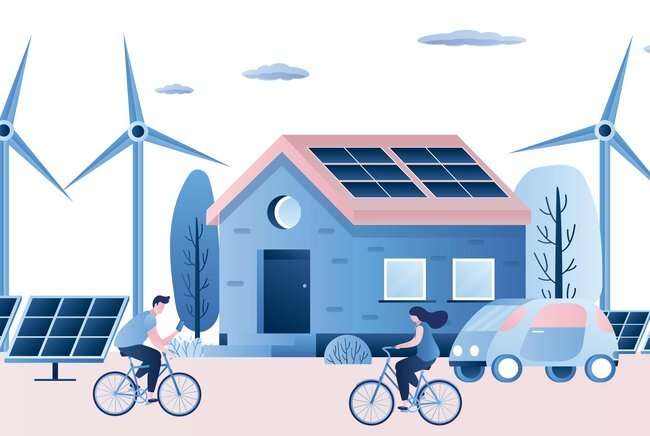Key life decisions shown to affect car ownership and renewable technologies in the home

For decades, car ownership has been essential for personal transportation. The use of cars though leads to problems in cities such as traffic congestion, inefficient energy consumption, and pollution. In recent years, electric cars, electric bikes, and car sharing have become more common, with the rate of uptake of these sustainable alternatives affected by life events such as a change of job or moving home. In addition, these tools can affect a household's energy use, particularly when an electric car is charged at home. Gaofeng Gu from the Urban Planning and Transportation group in the department of the Built Environment has investigated the relationship between key life events, car ownership, and home energy decisions in light of new mobility options. He defends his thesis on March 30th.
Buying a car is one of the most expensive purchases in anyone's lifetime, and people buy cars for many reasons. Some want to upgrade their current vehicle, but in many cases the purchase of new cars is linked to key life events such as a job change, the birth of a child, and residential moves.
New mobility options like electric cars and electric bikes are changing how people approach buying or upgrading their vehicles, but little is known with regards to how life events affect the uptake of these new mobility options. For his research, Gaofeng Gu has studied the relationship between key life events and the uptake of new mobility alternatives or tools.
Life trajectory and choice data collection
For his research project, Gu collected two types of data: life trajectory data and data on consumer preferences (or stated choice data). Life trajectory data sets, which is information on major life changes such as a new job, moving to a new house, or starting a family, were collected in the Netherlands in August 2017.
On the other hand, stated choice data was collected to analyze household choices on mobility tools and renewable energy technologies in the home. Individuals were asked to choose their preferred mobility tool, assuming that a particular life course event occurred in their household. The stated choice data was collected in the city of Weiz in Austria in October 2017.
Data modeling
After collecting the different data sets, Gu then designed models to analyze the data sets. In the case of the life trajectory data, a dynamic model was created to examine the influence of socio-demographics and life course events on how people change their car. The type of car changes and interval times between car changes are included in the model. Results based on survey data reveal significant diversity in household car ownership decisions.
To determine the impact of life course events on car ownership, another model that accounts for the correlation between decisions about an individual's current car and new mobility tools was used. Results from the model indicate that people are inclined to not sell their current car when they choose an electric bike or car sharing. In terms of life course events, baby birth has a positive effect on purchasing an additional car and a negative effect on purchasing an electric bike or joining a car sharing scheme.
Effect on renewable energy at home
Additionally, the effect of mobility decisions on investing in home renewable energy devices was investigated. One model showed that there is a wide range of behaviors among people, while a second model showed that income, home ownership, and house size greatly influence the likelihood that people will invest in renewable energy technologies.
For instance, if someone buys a battery-powered electric vehicle (BEV) there is a greater chance that they'll buy a solar panel or heat pump. Results indicate that the intention to purchase energy equipment is significantly associated with attitudes about the environment, energy-saving, and innovation technology.
Gu's research provides critical insight on the uptake of new mobility tools and how they are affecting long-term investment in home renewable energy equipment. In addition, this research can help in the drafting of guidelines and strategies by policymakers and urban planners to encourage investment in sustainable mobility and energy products.

















